Is it Safe to Go on Safari in East Africa? Your Ultimate Guide to Safe Safari Planning
There are usually two categories of people asking the question: Is it safe to go on safari in East Africa? It’s either those who are in the process of planning their once-in-a-lifetime Safari trip and want to understand absolutely everything before they make a final decision. Or those who have already booked it and now have friends and family asking questions about how safe East Africa is.
Both are good reasons for wanting to know more, so let me share with you everything you need to know before going on safari. A trip to East Africa is not without its risks, like most places, but with the right information, your safari holiday in East Africa will be safe and one you’ll never forget, and for all the right reasons.
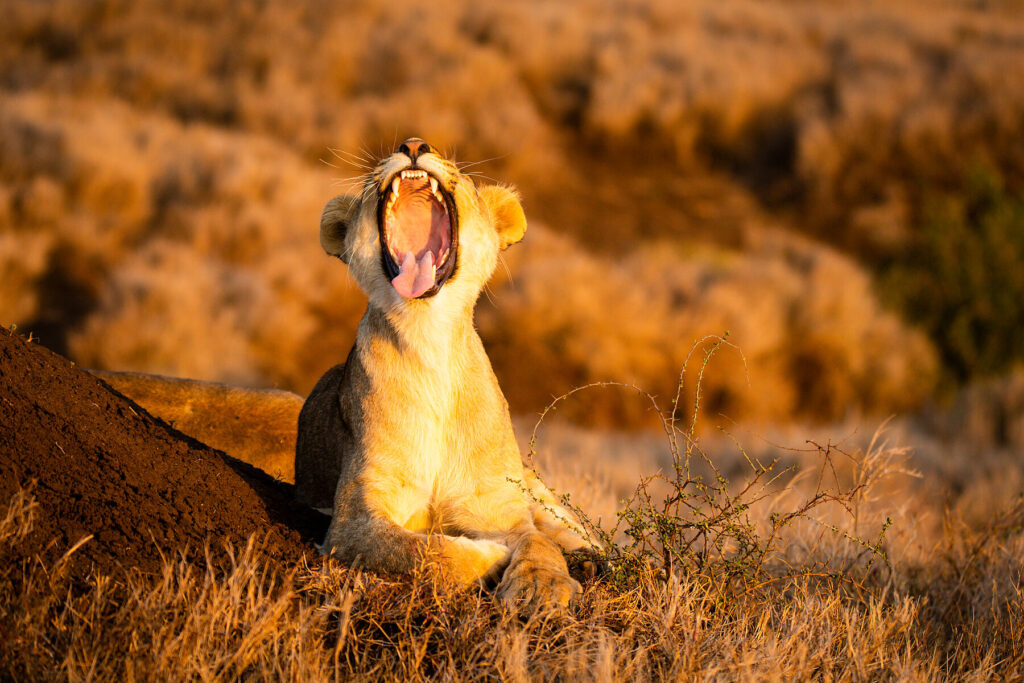
What are the Possible Risks of Going on Safari in East Africa?
The most common concern people have is being involved in an animal attack. Seeing wild animals in the open is the main reason to go on a safari holiday, so it’s impossible to remove this concern completely. However, I want to emphasise that the likelihood of this happening is extremely low.
In fact, according to Africa Travel Resource, it’s estimated that the chances of being involved in a fatal animal attack are around 1 in 80,000. Making it far less likely than being killed in a car accident and in reality, the chances are even lower for tourists because most incidents involve camp staff, local farmers and villagers. It’s also safe to assume that the majority of cases occur because best practices aren’t being followed.
Other risks people often ask about when going on safari in East Africa include the potential of contracting an illness such as malaria, worries about road safety and the chance of having negative run-ins with local residents or authorities.
How to Enjoy Wildlife in a Safe Way When on Safari
Follow your guide’s advice
Your guide is your number-one source of safety on a safari. They’re trained to understand animal behaviour and make sure that you don’t end up in any threatening situations. They know when it’s safe to move a little closer or when it’s best to stay well away. Trusting your guide and following their every instruction can significantly enhance your safety and overall safari experience.
Wildlife interactions with safari vehicles
Animals in safari regions often perceive the vehicles as a single, non-threatening entity and because of its size, they consider it too big to hunt. To maintain this perception, it’s important to keep this illusion by staying inside the vehicle. Avoid standing up, and always keep your limbs and belongings within the vehicle’s confines. This helps prevent triggering any defensive or aggressive responses from the wildlife that will force them to either flee or attack. This is also why it’s a good idea to wear neutral colours so you don’t stand out as a single person but simply just blend into the vehicle and surroundings.
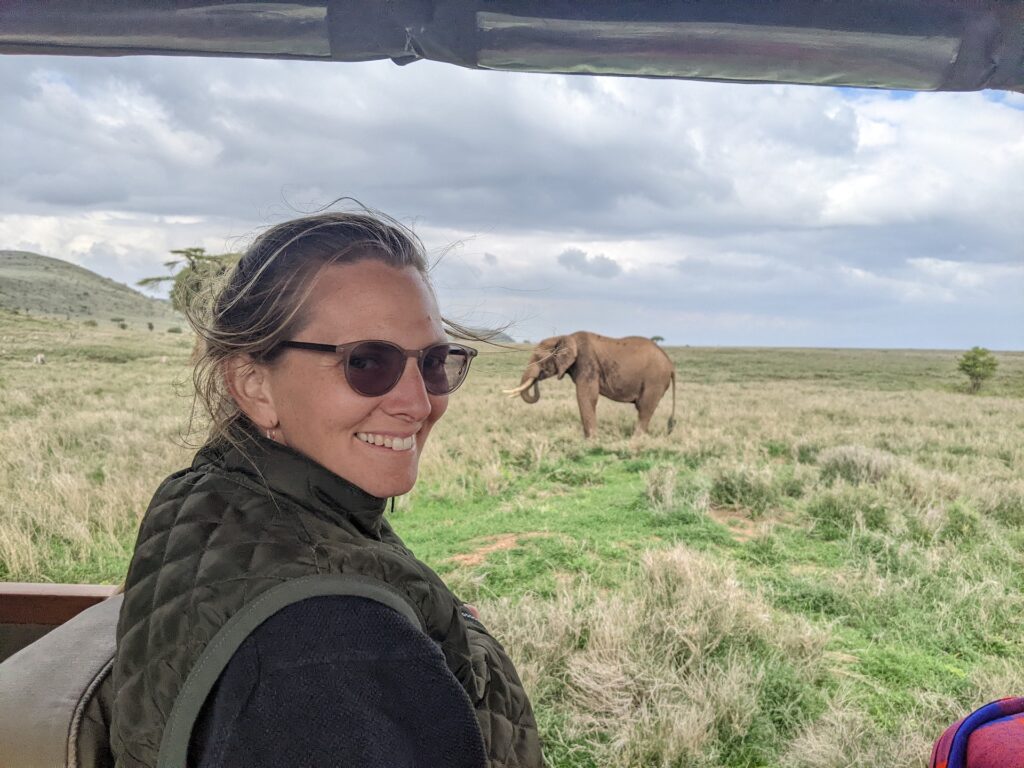
Guided tours – the safest way to explore
Choosing a guided tour rather than a self-drive tour ensures that you’re always accompanied by an expert who knows the terrain and understands the wildlife. This significantly increases your safety. Guides are knowledgeable and skilled in avoiding dangerous situations. Having someone with you who knows how to react in every situation ensures a safe and enjoyable experience.
The most important rules to follow when on safari
Every guide and safari company will have their own set of guidelines. However, here are some general rules that will be helpful on whatever safari trip you choose:
- Stay quiet and avoid sudden movements to keep from disturbing the animals. Many animals are familiar with the sound of vehicles but not human voices.
- Never interfere with wild animals, tourists are there to observe them not interact with them. Feeding or touching wild animals is likely to put your safety at risk.
- No smoking because it’s a fire risk to the dry landscape of East Africa.
- Wear neutral colours to help you blend in.
- Wear protective clothing such as socks, boots and long trousers to protect against dangers like thorny brambles, snakes and scorpions.
- Always stay inside your vehicle unless in a designated safe area.
- When on a walking safari listen carefully and stay behind the ranger. You will also be advised to walk in a single file, not to talk loudly, always be aware of your surroundings. and never run, it could either scare or entice the animals.
- Be prepared for changes in weather. Apply SPF, and bring a sun hat and layers. Long sleeves can help if the sun is strong or if you’re feeling cool. Covering up will also reduce the risk of insect bites.
- If you’re camping, stay in your tent at night, animals love a nighttime hunt. When staying in lodges in wildlife areas you will be escorted to your room at night, don’t try to walk it yourself. Be familiar with the guidelines if you do need to go outside during the night.
- You will often be told not to keep food in your tent. Bush pigs have been known to rip open tents and help themselves to your snacks.
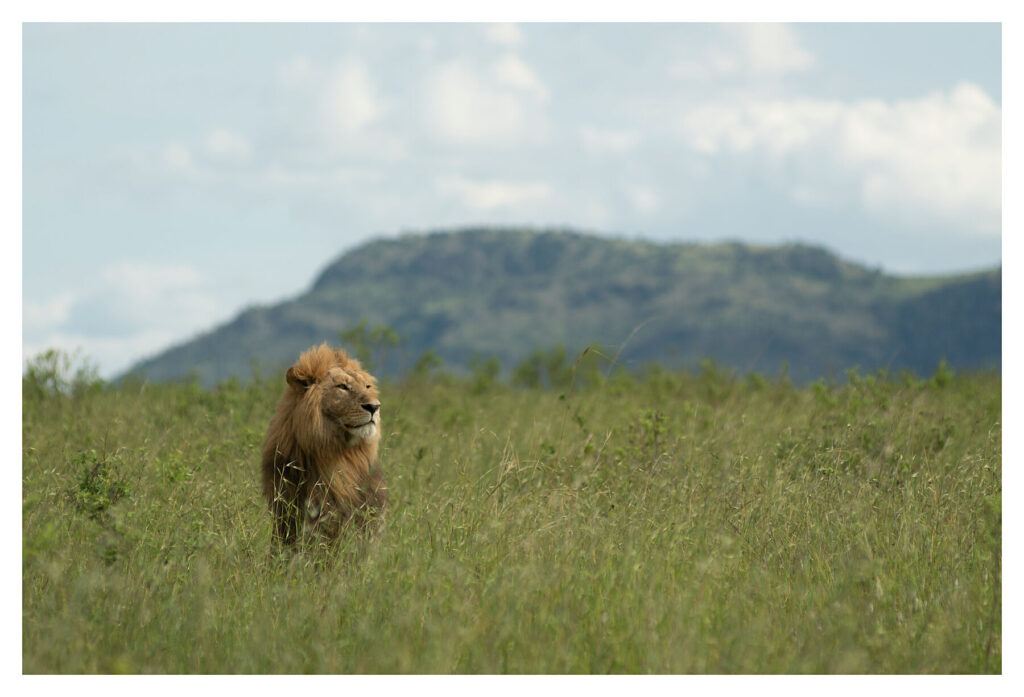
The Health Risks to Consider When Going on Safari in East Africa
Going on a safari in East Africa is an adventure that brings you close to the wild beauty of nature. However, it’s essential to consider the health risks associated with such an experience. Here’s what you need to know about the health precautions and measures to take.
Do I need any vaccinations?
Before heading to East Africa, it’s important to speak with your doctor or a travel medicine specialist. Depending on the specific countries you plan to visit, you might need several vaccinations. Check out my post on vaccinations needed for different areas. Commonly recommended or sometimes required vaccinations include:
- Yellow Fever
- Typhoid
- Hepatitis A
- Diphtheria
- Up-to-date Polio and Tetanus vaccinations
The right vaccinations are your first line of defence against potential health risks, providing vital protection in regions where these diseases are prevalent. You can take a look at Fit for Travel to check the requirements for the particular destinations you will be travelling to.
Is malaria common in East Africa?
Yes, many parts of East Africa are malarial zones, The World Health Organization identifies several countries in this region as carrying a significant portion of the global malaria burden.
However, even countries that are considered high-risk have very safe areas. So, there’s no need to rule out going to an entire country, you just need to research exactly where you’ll be going, and your safari company will be able to help with this.
Tips to help keep you safe in malarial zones:
- Speak with a healthcare provider to find the most suitable malaria prophylaxis for your travel.
- Use mosquito nets, wear long sleeves and cover your legs.
- Apply insect repellent, especially between dusk and dawn.
Following these preventive measures can significantly reduce your risk of contracting malaria. Take a look at WHO’s information on malaria to make sure you fully understand and know what to do should you or someone you know contract it.
Medical travel insurance for Africa
Taking out a comprehensive medical travel insurance policy really is non-negotiable for a safari in East Africa. Travel insurance is always a good idea no matter where you go. When planning for the safest possible trip, travel insurance will give you incredible peace of mind.
Your policy should include:
- Coverage for all your planned activities.
- Medical evacuation in case of serious illness or injury, as medical facilities may be remote or unable to provide adequate treatment.
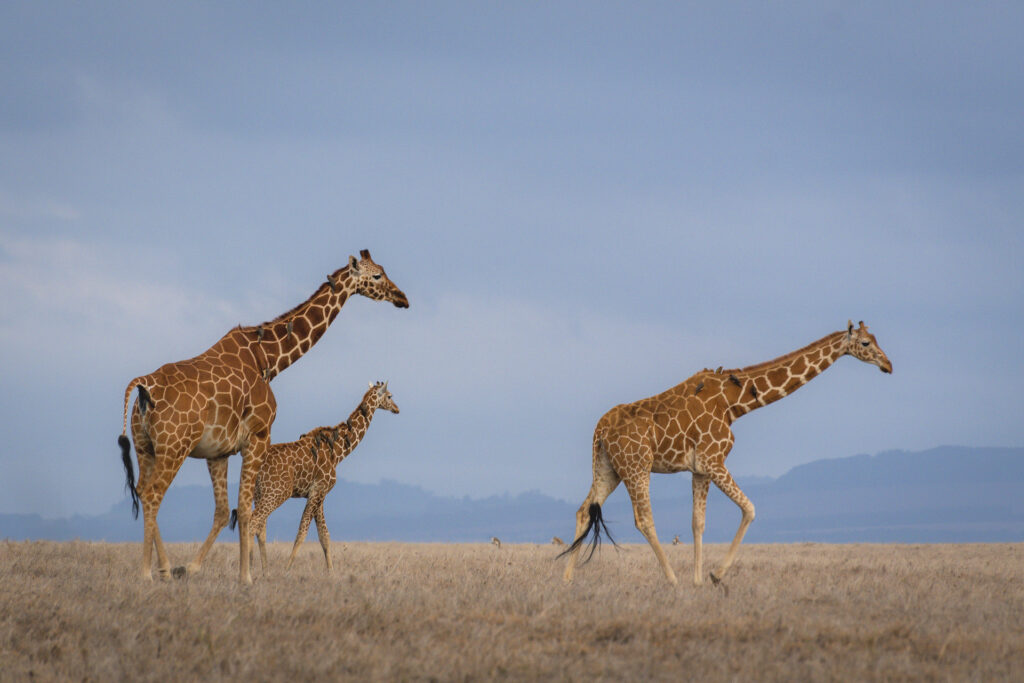
Bring all medical supplies you may need
If you take medication regularly make sure you bring plenty with you because there’s a chance you won’t be able to find what you’re looking for on your trip. It’s also a good idea to carry a personal medical kit for emergencies and always make yourself familiar with the locations of the nearest healthcare facilities.
Is tap water safe in East Africa?
Tap water in East Africa is not safe for visitors to drink. It can be contaminated with pathogens, such as bacteria, viruses, and parasites, which can lead to waterborne illnesses.
For drinking, brushing your teeth, or making ice, you should use treated or bottled water. Most lodges will be able to provide you with clean fresh water and as sustainability is growing in importance, many lodges will have a water filtration or treatment plant to reduce the need for plastic bottles.
If you are buying a bottle of water make sure the seal on the bottle is intact to avoid the risk of contaminated water. If you’re unsure you can also use water purification tablets, filters, or sterilisation pens.
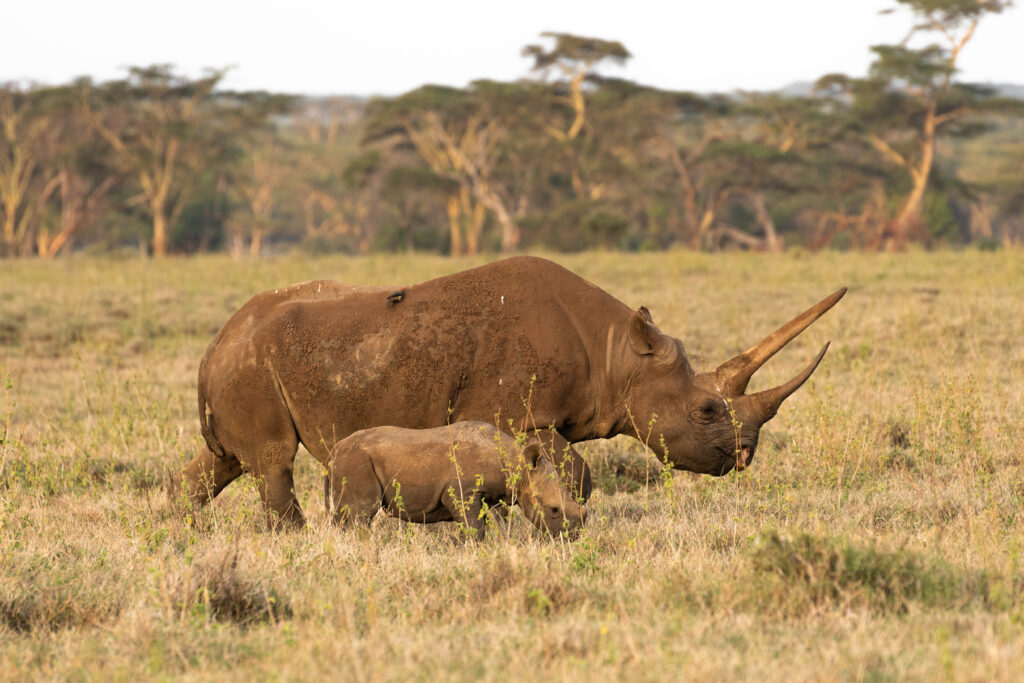
Staying Safe on the Roads in East Africa
When setting off on a safari in East Africa, especially if you decide to go on a self-drive trip, road safety is a critical aspect of your journey. Whether you’re navigating the rugged paths of a wildlife park or the huge variety of different roadways in the region. Here’s how you can stay safe while driving.
How to stay safe when driving within a park or conservation
Driving in a park or conservation area comes with unique challenges, as you’re sharing the environment with wild animals. Here are some essential tips to ensure safety:
Don’t break the speed limits: Parks and conservation areas have designated speed limits to protect both wildlife and visitors. High speeds can lead to dangerous encounters with animals and reduce your reaction time to unexpected obstacles.
Stay on designated tracks: Venturing off the marked paths can lead to risks with wildlife, damage to your vehicle, or harm to the natural habitat.
Avoid feeding wildlife: Feeding animals can alter their natural behaviour and lead to aggressive encounters. It’s also important to keep all food items securely stored to avoid attracting animals to your vehicle.
Remain in your vehicle: Except in designated areas, always stay in your vehicle. Leaving your vehicle can provoke wildlife and lead to dangerous situations.
Respect wildlife: Remember that you’re a visitor to the animals’ home. Keep a safe distance, avoid disturbing the animals, and never attempt to attract their attention.
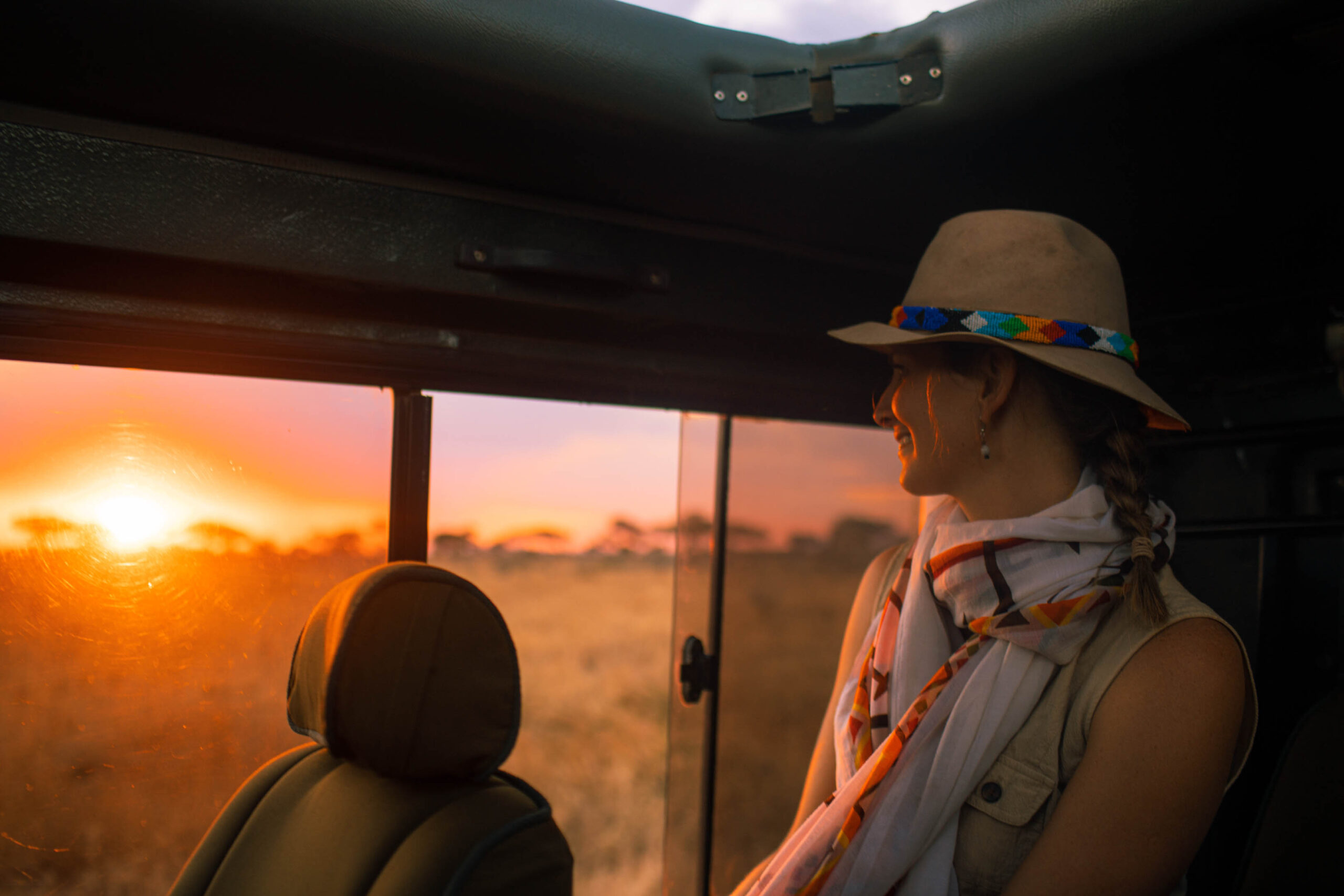
How to stay safe when driving on roads in East Africa
The roads in parts of East Africa can be challenging, especially in rural or undeveloped areas. Here are some tips to help you navigate them safely:
Prepare for varied road conditions: Roads can range from well-paved highways to unpaved rural tracks. Be ready for potholes, unexpected obstacles, and occasionally, unmarked roads.
Be cautious of other road users: Driving standards can differ significantly from place to place. Watch out for overloaded vehicles, vehicles without headlights, pedestrians, and livestock, especially in rural areas where traffic rules might not be strictly followed.
Vehicle maintenance: Keep your vehicle well-maintained, check everything including your tyres, brakes, and engine. A breakdown in a remote area can lead to huge delays and safety issues.
Carry essential supplies: Have enough water, food, basic vehicle repair tools, and a good spare tyre, especially when travelling in remote areas. It’s also a good idea to carry a local SIM card for SatNav and emergency communication.
Avoid night driving: Poor lighting, unexpected road hazards, and increased risk of crime make night driving a bad idea. Plan your journey to reach your destination before dark.
Staying Safe When Visiting Cities, Towns and Villages in East Africa
Visiting cities, towns, and villages in East Africa can be an incredibly enriching experience, offering insights into the local culture, traditions, and everyday life. However, like any travel destination, it’s important to be mindful of safety, especially concerning local crime and navigating urban environments.
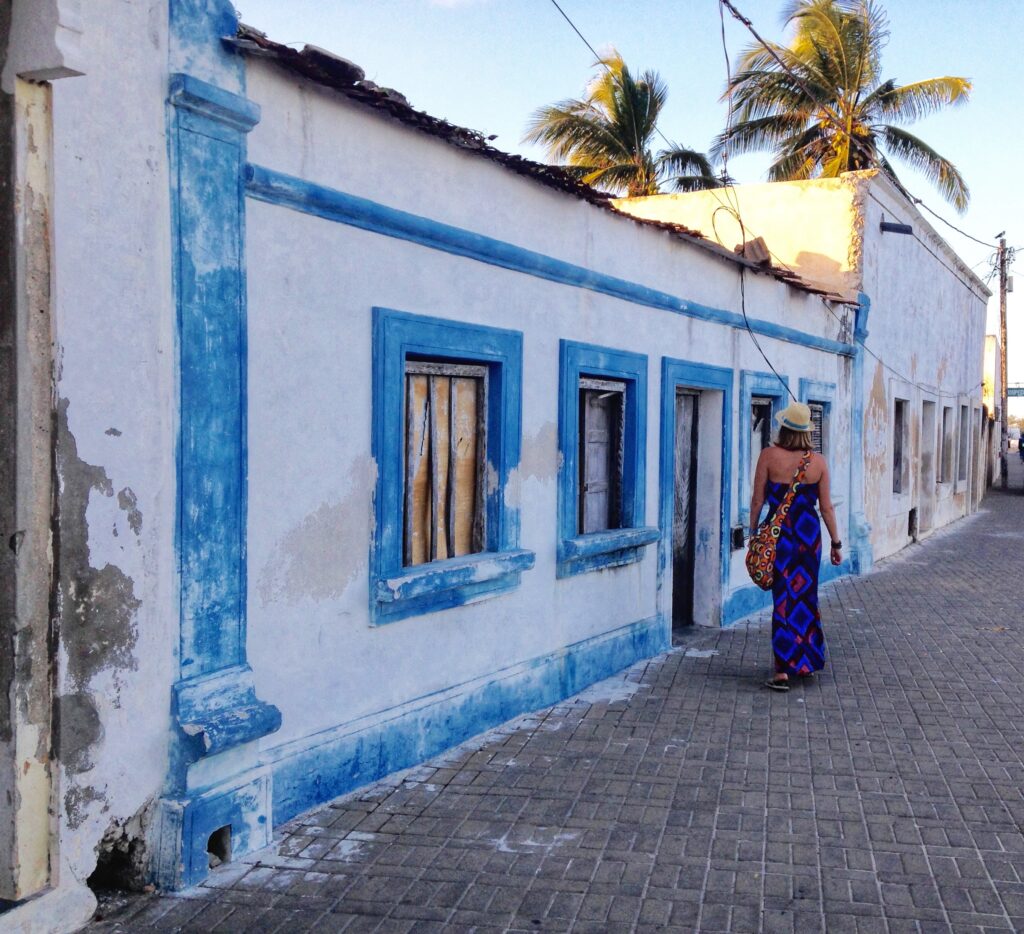
How to avoid crime when out exploring
East Africa is vast and each country and region brings its own challenges, just like a lot of places you can visit around the world. While most East Africans are welcoming and respectful towards tourists, it’s important to remain vigilant as petty theft, pickpocketing, and scams can occur, particularly in busy urban areas. Here are some tips to minimise risks:
Secure your belongings: Keep your valuables like passports, money, and cameras hidden in a secure pouch, especially in crowded places. Use safes in your accommodation to store extra cash or important documents.
Cultural sensitivity: Respect local customs and dress codes. Blending in can help you avoid unwanted attention.
Be emergency ready: Keep emergency numbers handy, including local police, your embassy, and your accommodation’s contact details.
Stay alert: Urban areas can have wildlife, like baboons or hyenas, especially in cities close to natural habitats. Maintain a safe distance and do not feed or provoke them.
Stay informed: Be aware of common scams and areas known for higher crime rates. Ask your hosts, hotel staff, or tour guide for up-to-date safety advice.
Be streetwise: Avoid walking at night, especially in poorly lit or secluded areas. Get a taxi or Uber, even for short journeys Always appear confident and purposeful in your movements.
Transport safety: Use only registered and reputable taxi services.
Traffic caution: Be extremely careful when crossing streets; vehicles may not always yield to pedestrians.
By staying informed, maintaining awareness of your surroundings, and following local advice, your visit to the urban and rural areas of East Africa can be a wonderful part of your experience.
Is it Safe for LGBTQ+ Travellers to go on Safari in East Africa?
Yes, it is safe for LGBTQ+ travellers to go on safari in East Africa.
This may seem strange because, in many East African countries, same-sex relationships are illegal. So, yes, technically in these countries it’s not allowed. However many safari providers are completely welcoming and the authorities don’t seem to care about this when it comes to tourists.
Most safari operators, lodges, and camps do everything they can to make sure all guests feel welcome and safe. However, it’s a good idea to check with your tour operator before you book your safari holiday.
When in a public place you should avoid public displays of affection, this is the case for heterosexual relationships too. It’s generally just a good idea for everyone to keep affectionate moments behind closed doors.
While the safari experience itself is likely to be welcoming and inclusive, being aware of and sensitive to the local legal and cultural context is important for a safe and enjoyable trip.
Is Single-Use Plastic Allowed in East Africa?
In recent years, several countries in East Africa have introduced strict regulations against single-use plastics. This initiative is part of a broader environmental conservation effort to reduce pollution, protect wildlife, and preserve natural habitats.
Travellers planning to visit East Africa should be aware of these regulations. Many East African countries, including Kenya, Rwanda, and Tanzania, have introduced bans on the use, manufacture, and importation of plastic bags.
Visitors are often required to leave plastic bags at the airport, and penalties for carrying them can be severe.
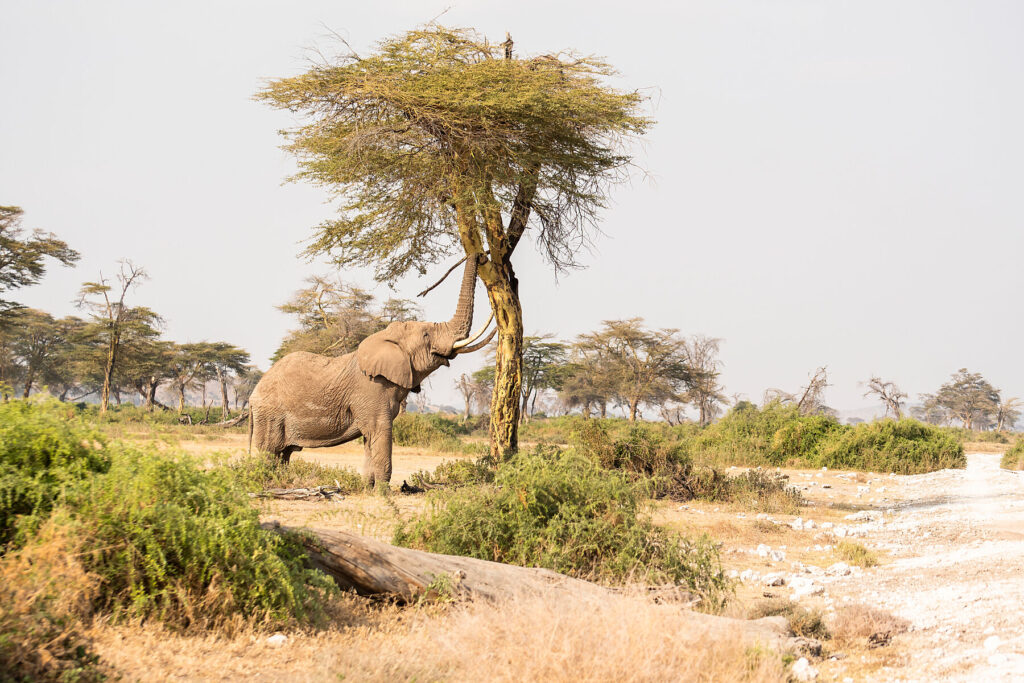
In Conclusion, is it Safe to go on Safari in East Africa?
So, going on a safari in East Africa is usually very safe if you’re well-prepared and know what to expect. People love safaris because they get to see amazing wild animals up close. But, of course, being around wild animals does have risks. Even though it’s very rare, there’s a small chance of danger.
Just remember before you go, make sure you know about health risks like malaria and get the right information from your doctor. Driving safely is also important, especially if you’re driving yourself. The roads can be tricky, and it’s best to know the rules and what to expect.
Visiting cities and towns can also be a great experience, but you should be careful, just like in any new place. Keep an eye on your things, be smart about where you go, and listen to advice from locals or your tour guides.
In short, your safari in East Africa can be a safe experience that you’ll remember fondly forever if you plan ahead. Follow safety tips, and respect the local rules and wildlife. It’s all about being prepared, staying informed, and enjoying the incredible adventure safely.
If you want to book your dream safari holiday in East Africa but still have some questions about safety, I’d be happy to chat with you about it. You can book a call with me and we can talk through all your concerns.

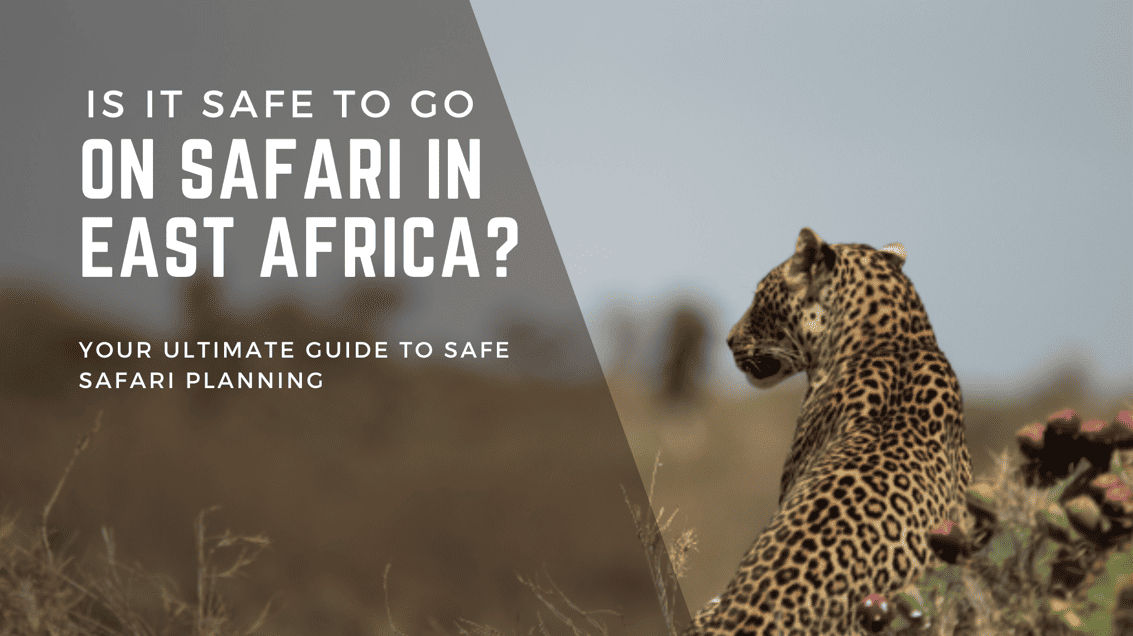











0 Comments